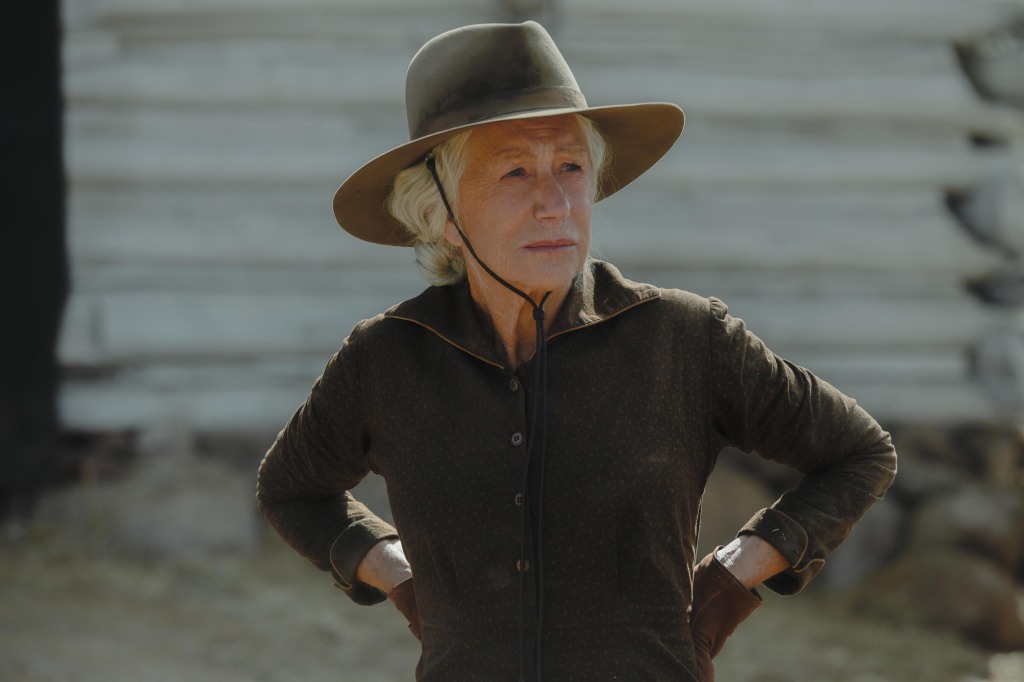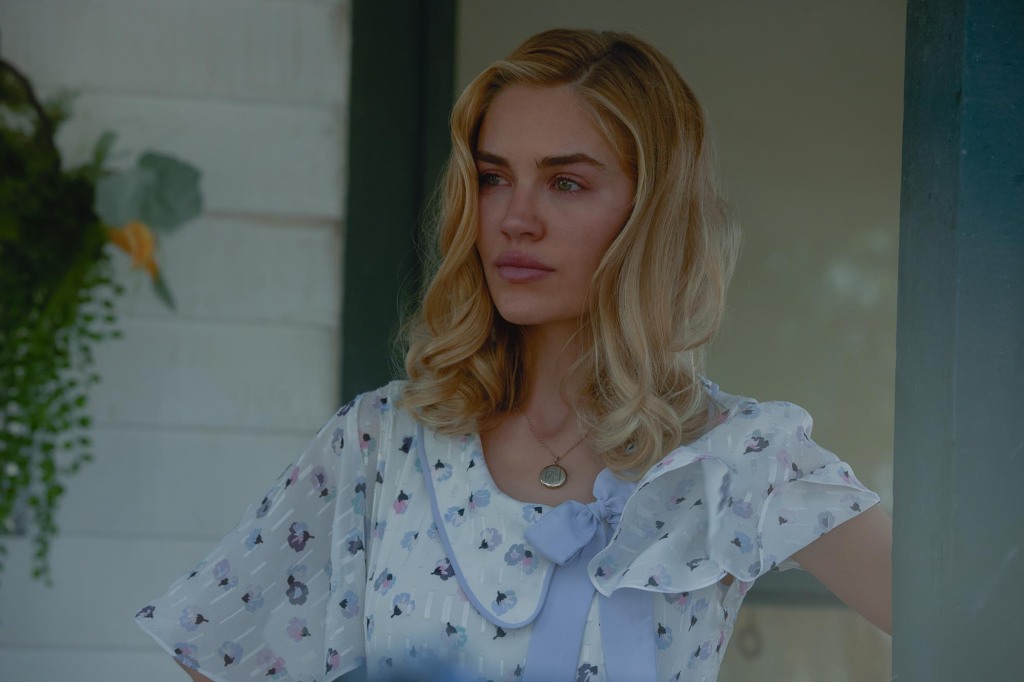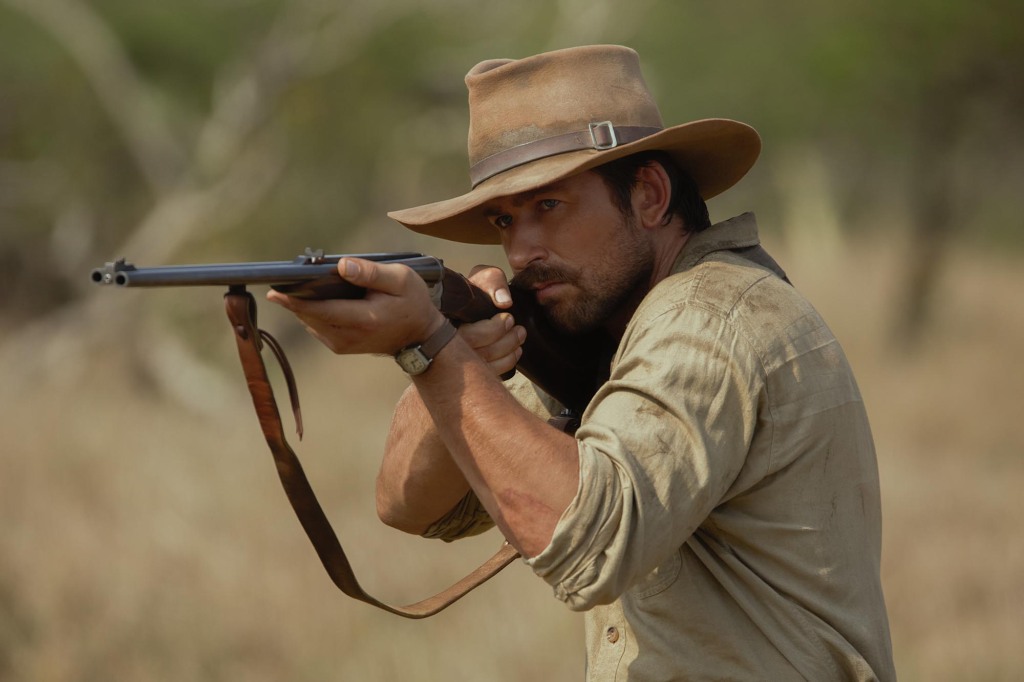‘It’s an American ‘War and Peace'”
Helen Mirren and Harrison Ford, who shared the big screen in “The Mosquito Coast,” are reunited, 36 years later, on the small screen in “1923” — the “Yellowstone” prequel series that continues Taylor Sheridan’s epic, cross-century saga of the Dutton ranching family.
“We signed on without reading the script, with a sense of faith and belief [in Sheridan] and that he was going to make something extraordinary,” Mirren, 77, told The Post. “I see this as an American ‘War and Peace’ — a look at this huge arc of American history through the intimate eyes of the people immediately involved in the creation of that history.
“I don’t see this as a ‘franchise,’” Mirren said of Sheridan’s Dutton universe, which also includes last year’s “1883” with stars Tim McGraw and Faith Hill as James and Margaret Dutton. “I see it as an extraordinary essay on American history and done in a way that it couldn’t have been done years ago. We’re looking at history now in a much more critical fashion.”
As it title implies, “1923,” streaming on Paramount+, unfolds after the end of World War I and the early years of Prohibition. Mirren plays Irish-born Cara Dutton with Ford as Jacob Dutton, the brother of her late husband, James, who later married Cara and took over the family ranch in Montana.

Co-stars include James Badge Dale as John Dutton Sr.; Darren Mann as John Sr.’s son, Jack; Michelle Randolph as Elizabeth Stafford, Jack’s fiancee; Brandon Sklenar as Spencer Dutton, a battle-scarred WWI vet estranged from the family and hunting game in Africa; Brian Geraghty (creepy Ronald from “Big Sky”) as Zane, the Duttons’ loyal ranch foreman; and Sebastian Roche as Father Renaud, the headmaster of a school for American Indians (which factors heavily into the “1923” plotline).
“Cara is a survivor. She’s a fighter. She has to be,” Mirren said of her onscreen alter-ego. “She’s very much the product of being an immigrant in this country of immigrants, having to put her eggs in that basket. That’s the nature of immigrants — they had no return ticket, they had to make a go of it here, they just had to, and that’s still the case.
“Her marriage to Jacob is a true partnership.”
The eight-episode series was filmed on location in Montana, which played a big part in helping to establish its contextual tone, Mirren said.
“The American landscape never fails to blow me away; anywhere I go in America it’s so beautiful and huge and overpowering,” she said. “On the last day of shooting, it was freezing cold, minus 25 degrees and snow … and I was up on the top of Bear Mountain in Montana and I stood there and thought, ‘I can’t wait to be back here.’ You cannot overestimate the strength of [that landscape] and visually it’s amazing for the audience to see that as well.”


Mirren, who’s won an Oscar (“The Queen“) and five Emmys (including two for “Prime Suspect,” for which she took him three BAFTA awards), said she and Ford — who’s making his series debut — would occasionally bump into each other at industry functions in the years following “The Mosquito Coast.” “I was amazed he remembered me at all,” she said. “When I worked with him before our status was so different. He was a humongous movie star and I was a successful theater actress, basically, who’d done a couple of movies but nothing on his scale.
“He was always kind and generous then and even more so now,” she said. “What’s amazing about Harrison is [that] he’s been this huge film star for a really long time and yet he’s a worker. He just wants to work and doesn’t want to make a fuss about it or want any particularly special treatment. He’s always there and the crew never wait for him. And I love that about him.”
Mirren, who’s no stranger to television, said that “1923” offered a new take on the genre, both visually and thematically.
“Our whole idea of watching television has completely changed in the last 10 years … and Taylor has always presented it as [that[ we’re basically doing a 10-hour film [with ‘1923’] and I happen to really like long movies,” she said. “I love the way characters can be fully developed and on TV, with this longform way, you do have the opportunity to develop character and plot in a much more wonderful and complex way than if you only had two hours to tell a story.
“It’s great to sit at home and watch something on the scale and beauty of this work we’re putting onscreen, but I do love the cinema with an audience as well,” she said. “I feel we have to keep that culture — there’s nothing quite like sitting in an audience of people all sniffling together or laughing together at the same joke.”
Read the full article Here


